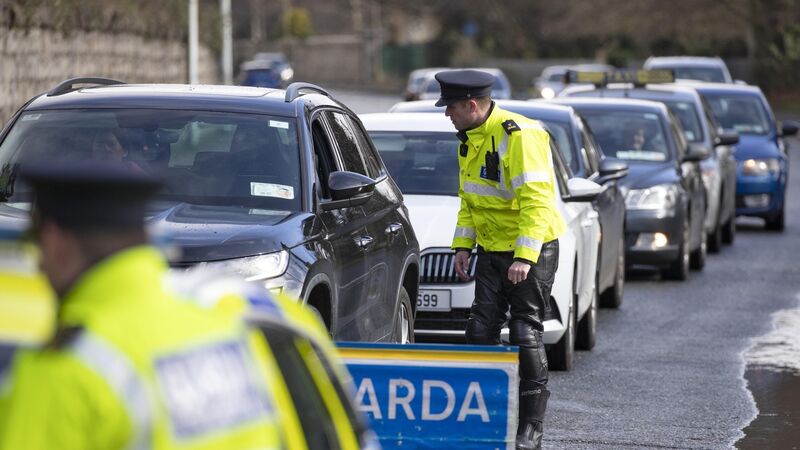Motor projects may be better for joyriders than bans or detention, study finds

Gardaí speak to motorists pictured at a Garda checkpoint on Chapelizod Road, Dublin. Picture: Colin Keegan, Collins Dublin
Motor projects for young men involved in car crime and joyriding may be more effective in combating the problem than driving bans or detention, according to new research.
The study said the State could support the courts in ordering young offenders to attend motor projects and that it could also assist youth projects in actively helping young men get driving lessons and take tests.










